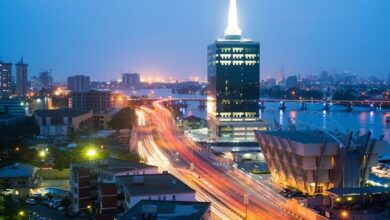Zoned Presidents, Zoned Country


“Zoning” has become one of those buzzwords that dominate political discussion at every presidential election since 1999 and it seems the coming 2023 election will not be any different. Zoning essentially assigns the presidency to a geopolitical zone, thereby limiting the pool of people who can contest for the presidency. As it is not enshrined in the constitution, zoning can only be done by the political parties.
“Entitled candidates concentrate on claiming it is their region’s turn to rule, a claim closely associated with and often indistinguishable from “It is our turn to eat”.
Prior to 1999, zoning was not considered a national issue as the politicians of the first and second republics preferred to make their case to the people rather than limit the pool from which Nigerians could search for candidates for the most important job in their country. In 1999, however, zoning the presidency to the Southwest by the Alliance for Democracy and the People’s Democratic Party (PDP) was the political elites’ way of compensating the region for the cancellation of the 1993 election which Chief MKO Abiola, a Southwesterner, is believed to have won.
Advocates of zoning argue that zoning is important for managing the immense distrust that exists among the various ethnic groups and political zones in Nigeria. Without zoning, certain regions (let’s be honest here, they mean the North) would always every four or eight years be the region that sends one of its own to occupy Aso Rock.
By guaranteeing all the zones equal access to the top job in the country, the rampant accusation of domination and marginalization would be dealt a deadly blow. The people of Southeast Nigeria, for example, have been complaining about their exclusion from heading the government since 1966 and from even deputizing since 1983. This complaint has contributed to the agitation for secession by some in the region and by zoning the presidency to the Southeast, the agitation would fizzle out.
One of the problems with the foregoing argument is that zoning the presidency to a region does not guarantee that the President that would emerge would really be the region’s choice. The same power brokers whose domination zoning seeks to break or dilute could “handpick” acceptable candidates who may not be popular in the region nominated to produce the “zoned” president. (In American informal English, “zoned” means “very tired, or unable to think clearly”).
The same power brokers would then mobilise voters in their region to vote for the “zoned” presidential candidate who is unpopular “at home.” This is what happened in 1999 when Olusegun Obasanjo was elected despite losing all the six states in his own region. Obasanjo did not visit anywhere in his Southwest region in the first two years of his presidency; violent agitations by Southwest groups like the Odua People’s Congress dominated Obasanjo’s first term. Zoning cannot stop the big regions from determining who becomes the president even when it is zoned to another region. A lackey can always be propped up in other regions to take up the slot.
Unless zoning is enshrined in the constitution, it is also bound to fail at some point. After 10 years of respecting the zoning arrangement, the PDP jettisoned it in 2011 when it allowed Goodluck Jonathan to run despite all the complaints from the North whose turn it was to produce the president. Jonathan would not have been running in 2011 if his former boss, President Musa Yar’adua had not died in 2010. PDP zoning did not make arrangements for what happens when the president using a region’s slot dies in office. A solution to this might be to ensure that both president and the vice president come from the same region but unless all the political parties agree to this or it is enshrined in the constitution, this would be a handicap for any party that decides to field such a one-zone ticket.
Also Read: PDP Chief, Bode George Calls for End to “Bullion Van Democracy”
There is also the question of entitlement zoning breeds among politicians. In 2011, political heavyweights like Atiku Abubakar, Bukola Saraki and TY Danjuma spent months advocating for respect for PDP zoning rules instead of spending the time to explain their manifestoes to the people. The Southeast is also making this mistake as their campaign for zoning is getting louder than their campaign for aspirants from the region. Even aspirants like Peter Obi are hanging their candidacy on zoning.
The presidency is not a gift to be dashed to any one region. It is there for anyone who is serious enough to do the hard job of convincing Nigerian voters to elect him or her. Instead of focusing on zoning, Nigeria is better off focusing on the proposed policies of candidates that are running for president. The solution to our problems will not be found in compensating aggrieved regions with a position but in rebuilding our economy and investing our energy and resources in strengthening local and state governments.
Entitled candidates concentrate on claiming it is their region’s turn to rule, a claim closely associated with and often indistinguishable from “It is our turn to eat” as Micheala Wrong described the politics of Kenya in her memorable book. There is little or no attention to crafting or proposing solutions to Nigeria’s myriad problems. Zoning produces zoned presidents and a zoned country.







